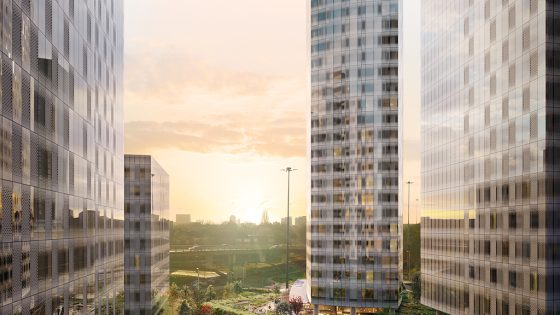A major high-rise developer has urged the Building Safety Regulator (BSR) to allow earlier construction stages to start while an application is under consideration, to combat delays.
In an opinion piece for Construction News, Downing Group founder George Downing called upon the government to allow gateway applications to be assessed in stages, rather than requiring full construction plans up front.
He said that although he understood the importance of building safety, current delays at the BSR were “hindering progress, stifling innovation, and threatening the UK’s competitiveness”.
Major construction industry figures have been reporting for months that delays at the BSR are hampering high-rise construction, which CN recently explored in a two-part series.
Downing suggested the regulator could allow less contentious work earlier in the construction programme, such as groundworks or structural frames, to progress while it is assessing plans for later construction stages.
“This would ensure that project momentum is maintained without compromising on the overarching safety objectives,” he wrote.
A BSR spokesperson told CN that applying for building control approval in stages is allowable within the legislation. The BSR would only consider this when it is unviable for applicants to provide detailed plans for an entire development or building.
They said: “In practice, this means that staged applications will not be suitable in all cases.
“A staged application may be appropriate for a complex building with multiple elements. It is not appropriate for packages of work for a building as all aspects of building regulations compliance are considered for the whole building.”
The spokesperson added enough information about all stages would have to be provided to assure the BSR that the building would meet building regulations.
“This means that subsequent stages must not have gaps in information or undecided design elements that may impact on compliance with building regulations requirements, requiring a robust set of information to be submitted to BSR,” they said.
Downing also wrote that the BSR should be better resourced to handle the surge of applications it had received and better communicate its requirements.
Downing’s suggestion is the latest in a line of industry views about how the overloaded regulator might be reformed. The BSR has suggested that it might be open to offering a pre-application meeting, similar to that used within the planning system.
The regulator has also told CN it has brought in external consultants to review its operating procedures and is currently exploring different structures of working with outside professionals to mitigate staffing pressures.
Downing, whose firm currently has projects worth £1.6bn due to start on site within the next 18 months, pointed out that such schemes provide jobs, homes, local investment and growth opportunities.
Downing specialises in developing and building purpose-built student accommodation, often city-centre high rises. It is currently building the £400m Square Gardens in Manchester (pictured) and is due to start a 1,200-bed scheme next to Leeds Arena.
The BSR spokesperson said: “At each stage, developers must provide clear evidence of compliance before being allowed to progress.
“This process is not just about improving technical standards; it’s about securing lasting cultural change in the industry by placing legal responsibilities on dutyholders and making them accountable for safety outcomes.
The introduction of gateways helps prevent unsafe buildings from slipping through the net, puts residents’ safety first, and rebuilds trust by ensuring that only buildings meeting rigorous safety standards can be constructed and occupied.”

